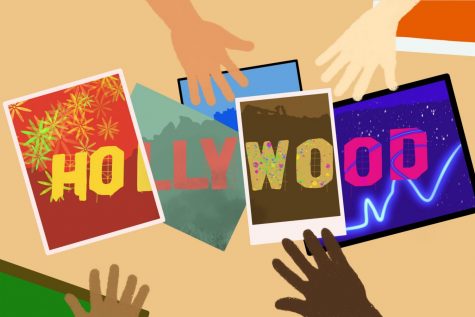OPINION | Diversity in “Mulan” proves Hollywood has long way to go
September 30, 2020

When I was little, my sisters and I would curl up in our living room and watch Disney princess movies for hours. Our favorites included “The Little Mermaid,” “Pocahontas” and “Mulan,” which would continually be on loop on our boxy Panasonic. As a white woman, “Mulan” did not have any cultural significance to me, but it definitely shaped my perspective on womanhood and the power women have as self-sufficient individuals. When my friends and I heard Disney was making a live-action “Mulan,” we decided to have a group viewing equipped with snacks and high expectations.
While watching the movie, I was slightly disappointed by the story discrepancies between the 1998 version and the new adaptation. That made me realize, however, how white-washed and inaccurate the version I grew up with and loved as a child was. The 1998 “Mulan” was primarily written, directed and produced by white men. While a majority of the voice actors were of Asian descent, the story they were telling was only loosely adapted from the original Chinese folktale. The 1998 film was based on the “Ballad of Hua Mulan,” which was a poem written during the Northern Wei Dynasty between 386 A.D. and 534 A.D. about a girl who enlists in the army to save her father. Even though the 1998 film does include this as a major plot point, there was no mention of a love interest in the poem, nor any inclusion of familial spirits. The 1998 version is arguably less feminist than the poem because at the end of the movie, after saving China and the Emperor from invasion, the leading character’s family reacted more when she brought home a man than in response to her dangerous and heroic achievement.
The 2020 version of the film also deviates from the original poem, but significantly less than the 1998 adaptation. This version focuses on the character development of Mulan as a warrior, rather than her relationship with Li-Shang, who is not even a character in the new film. The screenwriters, however, included a new character Xianniang as a foil to Mulan, to emphasize Mulan’s power as a warrior, otherwise known as her qi.
One would think Disney would learn from their past criticism and remake the 2020 Mulan with a predominantly Chinese production team. The screenwriters, director and producers, however, are all white. This information was extremely disheartening to read, especially after hearing so much about Disney’s effort to stay within the cultural guidelines of the poem and Chinese culture in general. Disney also made a public search for a Chinese actress to play Mulan after multiple petitions were released over rumors of whitewashing. But to me, finding a Chinese actress to play Mulan should be expected and not something that is revolutionary. Who else would be fit for the role?
The remake of Mulan was a step in the right direction for Hollywood in terms of honoring cultural significance, but it ultimately proves how far behind Hollywood is in diversifying powerful production teams.









Marie Gould • Jan 23, 2021 at 6:17 pm
I have the misfortune of living in a beautiful neighborhood near the Tulane campus where students disregard their neighbors that include people who are disturbed by their music or their high volume partying. The loud music and the inconsiderate, adolescent behavior of students makes life unpleasant for the adults around them. I am sure their families would be ashamed of the disregard they have for the neighborhood and for other people. In addition to loud noise, they degrade neighborhoods with the liter they throw on our streets.
While they probably wouldn’t care if we, like them, threw trash in the sidewalk and street they might be annoyed if we started playing our favorite operas at high volume in the morning when they are trying to sleep.
Perhaps the Hullabaloo can do something to remind students to be good neighbors and tell them what constitutes a good neighbor.
asd • Oct 8, 2020 at 1:42 pm
Where is the diversity in this movie? If american companies can bring diversity into european historical fiction (greek Mythology, Northern Mythology, King Arthur etc.) then they have to bring also diversity into a chinese historical fiction movie. It is racist, that americans imply that you confront europeans with a black Achilles or black characters in robin hood in which both examples tell a fictional story in ancient and medieval Europe, because we are so open minded but you can not bring hispanic or black characters into a fictional asian movie because you would probably hurt the feelings of this supposed narrow minded people.
The skin color of the production team doesn’t matter. It is an american movie made of an american company. If you want a closley adapted telling from the original Chinese folktale, you need chinese people. You find movies of that kind. They are subsumed under the category “chinese movies” and you can watch them with subtitles. Or are these foreign movies not worth the time of an american women?